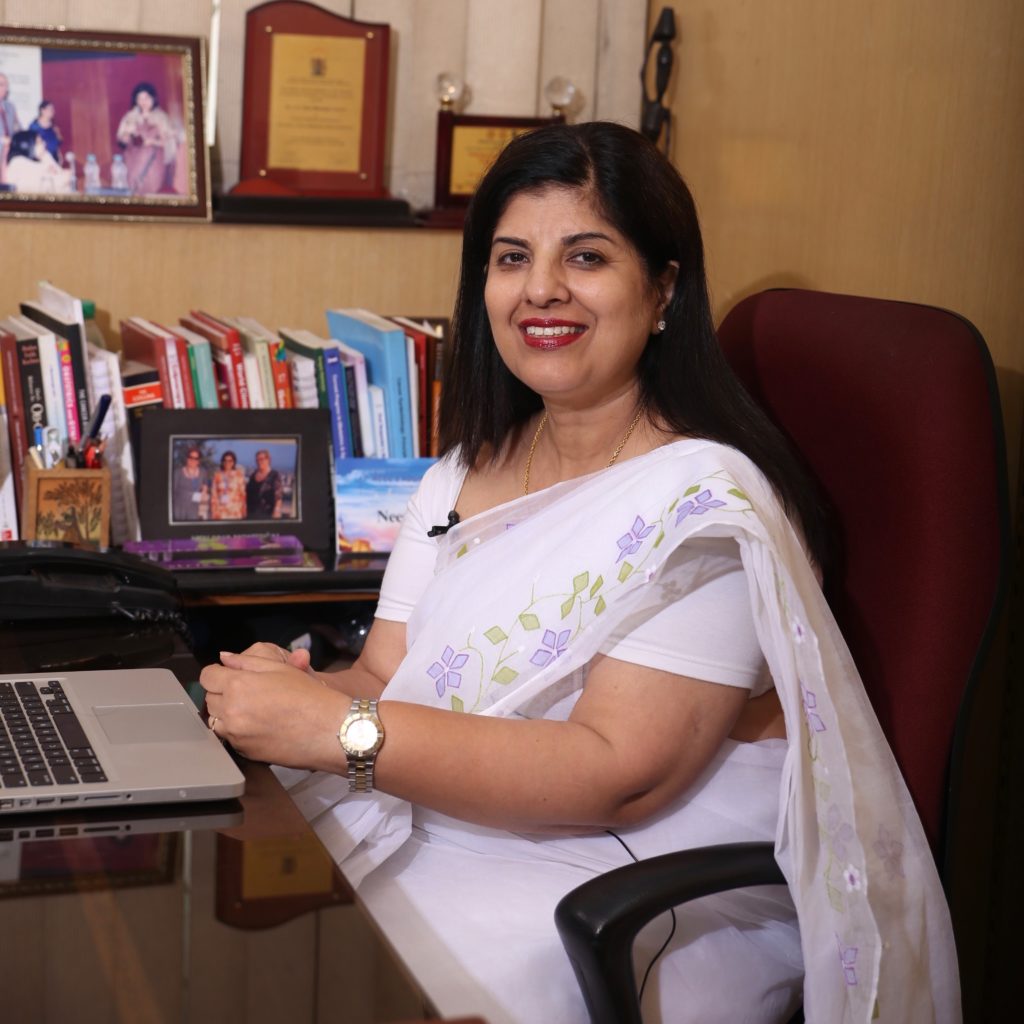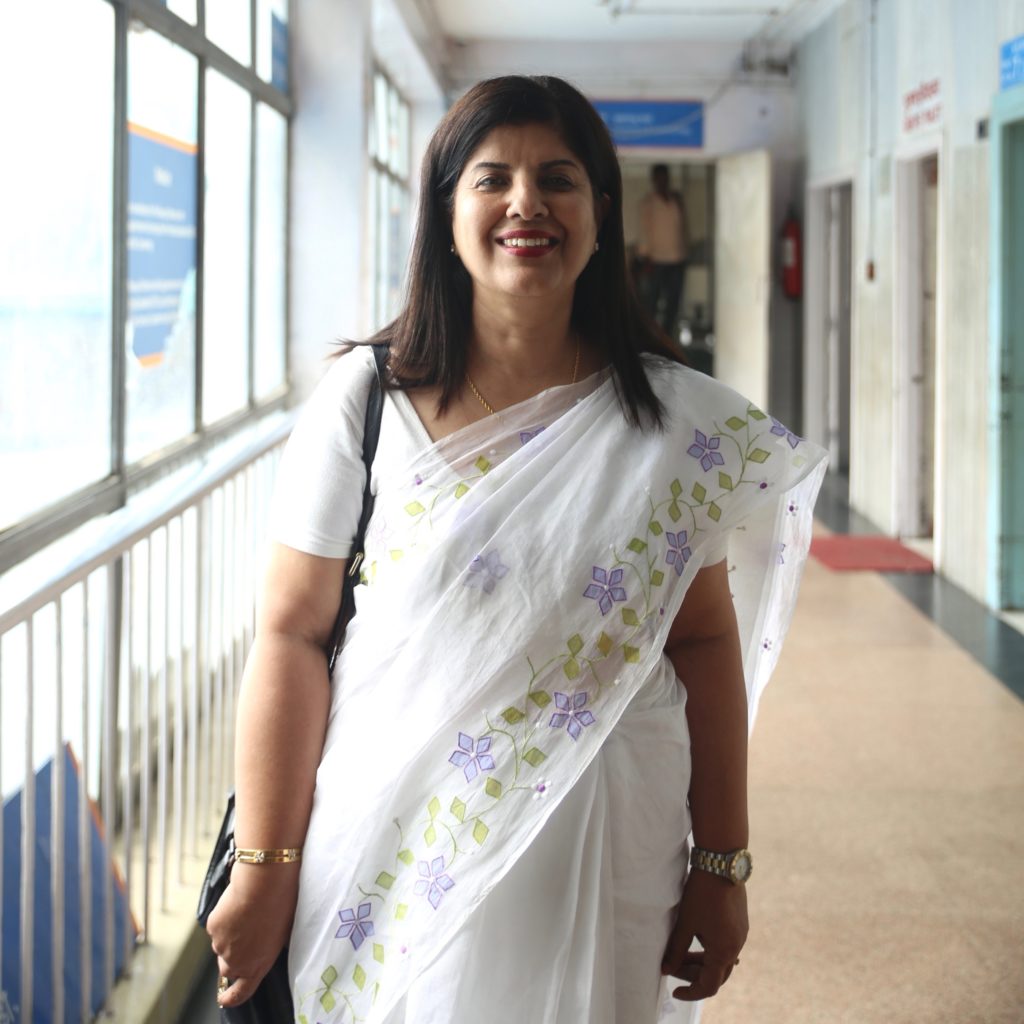Dr. Bhatla: The Relentless Clinician
Protecting Indian women from cervical cancer
January 2020 – In the heart of India’s capital city, New Delhi, Dr. Neerja Bhatla has been working for over two decades to prevent the spread of cervical cancer amongst Indian women. Dr. Bhatla is the Head of the Department of Obstetrics and Gynecology at the All India Institute of Medical Sciences, Delhi. As faculty at one of the largest government hospitals in India, she sees patients from all over India.
“Cervical cancer is the second most common [cancer] after breast cancer in India,” said Dr. Bhatla. “Women come to us at various stages of cervical cancer and we look at curative treatment for those who come to the hospital.”
However, women often present at the hospital when cancer is more advanced, making it harder to effectively treat. “Because we don’t have a systematic cervical screening program, we don’t have a lot of patients who come to the hospital with pre-cancers or early stage cancers,” she points out.

This situation compelled her to step outside of her clinic and partner with nonprofit organizations to bring cervical cancer screening and pre-cancer treatment services directly into communities. By doing so, women with pre-cancers can be treated at the periphery level itself. “We now know for a fact that if we screen women and take the pre-cancerous lesions out, we can prevent this cancer,” said Dr. Bhatla.
India carries a large burden of cervical cancer, with an estimated 60,000 women dying from the disease each year, a death toll that is larger than the number of women dying of maternal mortality in India. “It’s almost as if you save them from maternal mortality and then they go on to have this health problem ahead,” stated Dr. Bhatla, pointing out the irony of the growing health crisis.
According to Dr. Bhatla, the Indian government is mobilizing in response to the severity of the situation and is pushing for a screening and pre-cancer treatment program as part of the National Health Program for Cancer across some districts in India.
However, Dr. Bhatla points out that the HPV vaccine, which prevents infection from the virus that causes most cervical cancers, is still not part of the government’s health program. That needs to change. “It’s important to let parents and communities know that the HPV vaccine is safe, it’s effective, and it’s rather affordable in the larger scheme of things,” she added.

Dr. Bhatla has put up a poster about the HPV vaccine in her clinic. She says that there is still much work to be done in order to build awareness about the HPV vaccine in India. She believes that as doctors, she and others should actively provide information to patients so they can make the right decision on time, “The most important thing is to involve the adolescents in discussions and give this vaccine to them as that’s when you get the best response,” she added.
According to Dr. Bhatla, to increase HPV vaccination and cervical cancer screening, it will also be critical to reduce the stigma around the disease. “Everyone knows a breast cancer survivor, but everyone does not know a cervical cancer survivor, and that’s because women are still hesitant to talk about it,” said Dr. Bhatla. “We need to make it clear to women that it’s a common infection that anybody can acquire, and it doesn’t mean that you did anything wrong to get it,” she added.
Ultimately, Dr. Bhatla believes that the efforts to fight cervical cancer in India need to be sustained and widespread. Many of the women diagnosed with cervical cancer are younger than those who get other kinds of cancer. The years of life lost are immense. “We’ve had women who have this cancer with young daughters in school, and they worry about what will happen to them if they die,” she shared.
And yet the cancer is entirely preventable.
“We have the tools and we know how to use them to prevent it [cervical cancer] and it’s a shame if we don’t use it to help the women who need it most,” said Dr. Bhatla. It will be pertinent to provide awareness within cancer clinics and communities and to use resources to take preventive, as well as curative, actions.
“As specialists working in this space, it has to begin with us. At the end of the day, we should ask ourselves how many women did I screen today, how many girls did I motivate to get vaccinated? And if each of us does that, then we will make a difference.”


Faces of Hope India is a joint project of the American Cancer Society and TogetHER for Health
View more “Faces of Hope” stories
